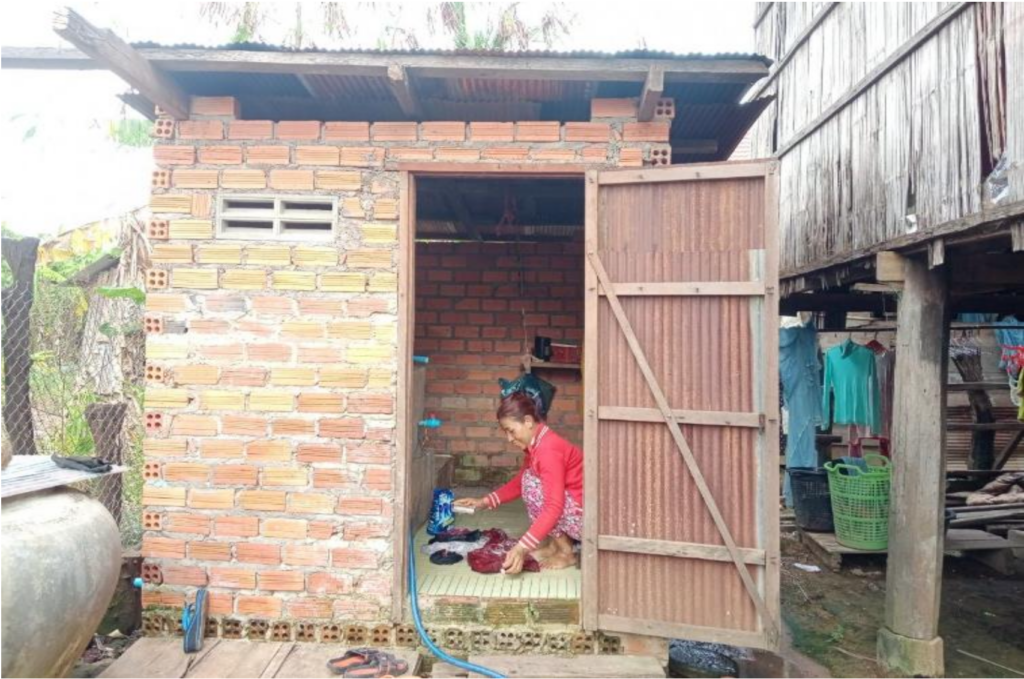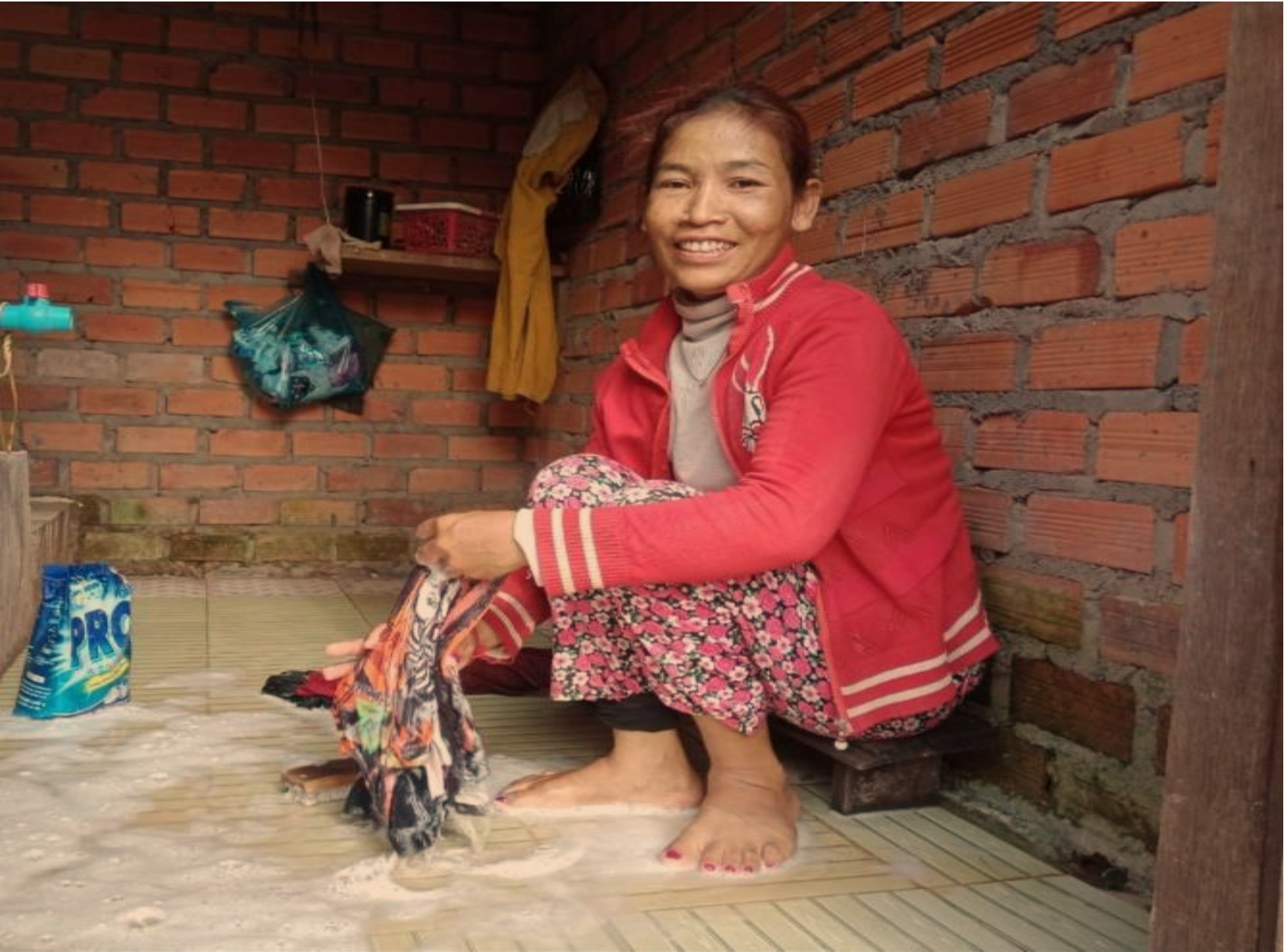Access to sanitation is a basic human right however 46% of the world’s population are still living without access to safety managed sanitation. Sophay and her husband Hieng were two of those people.
Sophay and Hieng, live in Preah Vihear province with their two kids and Sophay’s brother. Her daughter is a student at a secondary school, and her son is studying at a primary school. They do not have access to sanitation or a clean toilet and often needed to go walk a long way or use their neighbours toilet.
“It was very difficult for my family; before, we would go to the bush to do the needful. Sometimes, we need to ask my neighbour to use their toilet. At night, I had to dig a hole behind my house as we were scared of snakes and other venomous insects. Last time, I was about to get bitten by a snake, which is why I’m still scared of it. Also, I feel very shy and unsafe while having a bath in an open space, and I also cannot clean my body well,”
– Sophay
Adding to the difficulties, Sophay also lives with a disability, and Hieng, is the family’s only breadwinner. Working as a construction worker, Hieng earns around US$100 monthly to support the family, however because of their low income and lack of resources, Sophay and Hieng could not afford to build a toilet in their home.
The Sanitation Action Group (SAG), the PASSA (Participatory Approach to Safe Shelter Awareness) group, and the local authorities recommended Sophay’s family for support. Based on the family situation; facing poverty, vulnerabilities, and lack of basic needs, the Building Rural Resilient Communities (BRRC) project team decided to support Sophay’s family with a toilet pan, four concrete pillars, one concrete cover and connection pipes. The family was able to contribute other materials such as bricks, tiles, stones, cement and a zinc roof, themselves to build the toilet facility. Construction of the toilet was completed on May 30th, 2022, by Hieng, who utilised his experience and skills as a construction worker for the project.
“Having a toilet and a bathroom made me feel safe and comfortable while having a bath. I can also wash clothes inside. My family and I no longer need to go far from home or bother our neighbour to defecate. We no longer have to worry about snakes or other venomous insects. I’m thankful to everyone for all your support,”
– Sophay

Building Rural Resilient Communities (BRRC) project is supported by the Australian Government Department of Foreign Affairs and Trade (DFAT) through the Australian NGO Cooperation Program with Habitat for Humanity Australia and implemented by Habitat for Humanity Cambodia and Non-Timber Forest Products (NTFP) in Preah Vihear province.


